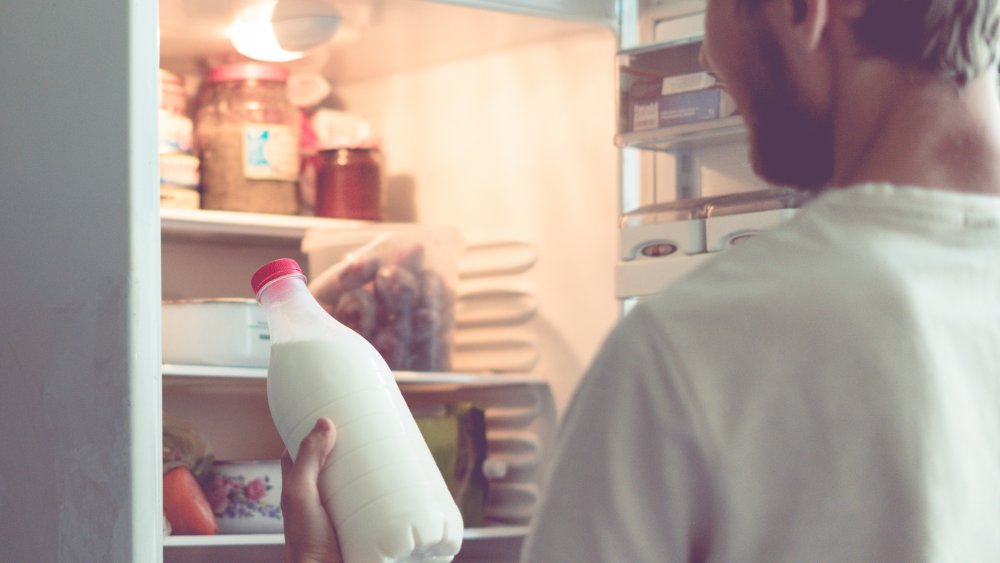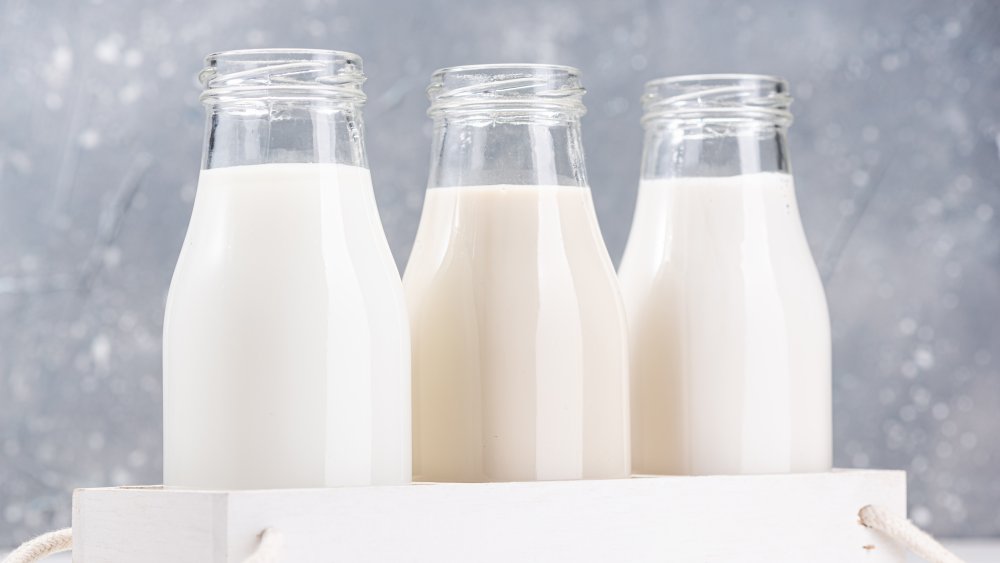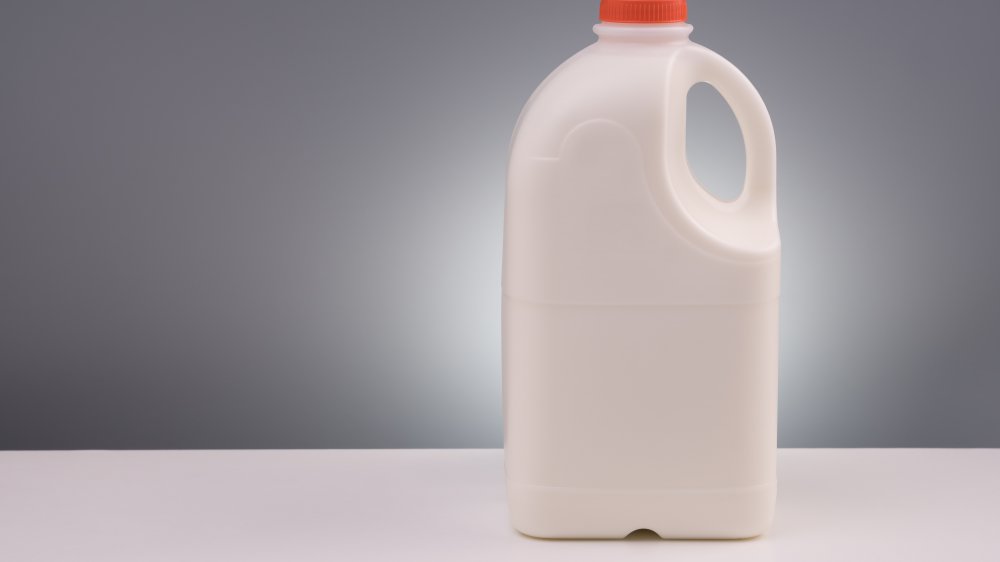What You Need To Know Before Putting Milk In The Freezer
In a perfect world, we'd be able to stick any sort of food in the freezer and be confident that it would be just as perfect months later as the day we confined it to a deep freeze. We don't live in a perfect world, though, and as awesome as freezers are, there are some foods that just don't belong in there. Milk, in particular, is a bit of a toss-up.
If you notice that your milk's sell-by date is fast approaching, the Dairy Council of California does say that it's safe to put it in the freezer. Keep in mind though, that your enjoyment of that milk all depends on how you go about freezing and thawing it.
First off, there's the issue of expansion. Dairy milk is 87 percent water, so just like a soda or beer in the freezer, it's going to expand when frozen. So make sure that you leave some extra room in the container — otherwise, you're going to have a real mess on your hands to clean up. The Spruce Eats recommends you leave at least an inch and a half of headspace in the container.
Also, make sure whatever container you store it in is also airtight and stored away from things like fish — nobody wants mackerel-flavored milk.
Some milk freezes better than others
Even if you opt for non-traditional milk and prefer something like almond, soy, flax, or coconut milk, you can still freeze these. Don't freeze these in the can, though, and instead transfer them to a plastic bottle with some room for expansion.
Here's what you should know about freezing your milk though — it's very likely that it will separate after freezing, and this can cause a grainy texture that may be unpleasant to drink. It's for this reason, that a lot of people prefer to use frozen milk for cooking rather than drinking. Shaking the milk vigorously can help it mix back together, and a blender will work even better at mixing those separated fats back in.
As far as the best types of milk to freeze, something with a low-fat content like skim or one percent is going to freeze and thaw better than whole or buttermilk.
Don't thaw frozen milk at room temperature
When you're ready to take your milk out of the freezer and defrost it, the best method is to simply let it thaw out and liquify in your refrigerator. Don't let it thaw at room temperature, as this puts it at risk of bacterial contamination (via Healthline). If you're in a rush to thaw it, you can speed up the process slightly by submerging the jug in cold water, but again, this is still not as safe as opting for the fridge.
It's certainly possible to freeze and safely thaw and enjoy milk later — just make sure you do it correctly.


